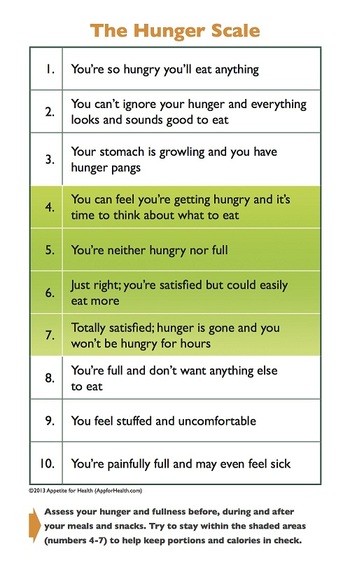In efforts to continue my passion for helping people through the muddy journey of achieving a healthy weight, the topic of mindful eating is worth thinking about especially during the holiday season. No matter the diet that we strive for, there is always the element of behavior that comes in to play. For many, this can make or break the whole thing.
I found this out when I asked a weekly weight loss group the simple question, "Why do you eat?" The first time I did this, I was shocked. It took a few answers before I got the one I was looking for. Answers that were given had to do with things like boredom, stress, emotions, social enjoyment, comfort, time, anger and more. I, of course, expected them to say "hunger."
I quickly realized what, when, where and how much we eat often is more about our feelings and habits than the nutrition of it. I learned that helping people to be successful in weight loss would mean combining nutrition education with behavior modification therapy. I also realized it was seemingly difficult for many adults to define and follow simple eating cues like hunger and fullness. Mindful eating quickly became a large focus in the weight management program I was teaching.
Mindful eating is a huge topic involving many elements of attention and awareness from the decision to eat to the decision to stop and everything in between. For now, I'd like to focus a bit more on just a few of those things that impact our decision to start eating.
Is it apples to apples?
When you make a decision to eat, for the most part, you should feel hungry. Sounds pretty simple right? After all, this would be acting on the most basic of internal cues. Three- and 4- year-olds are expected to answer basic need questions with the appropriate action when being tested for pre-school readiness. I remember my son being asked what to do when he is cold (put on a coat); what he might do if he feels tired (sleep); and what to do when it is raining (grab an umbrella). Many adults would fail this pre-school test, answering "I eat" to questions like these.
The fact is we eat when we are tired, angry, stressed, nervous or bored -- or when it is raining for that matter. Thinking about this may help control or regulate your food intake a bit. Try to pinpoint if you are eating for something other than hunger by asking, "Am I truly hungry?" If you are hungry, you should eat -- this is apples to apples. The action is directly related to the need -- just like sleeping because you are tired. If you are not hungry then what is it that is making you think you are? It is appetite, boredom, stress, thirst? Then find an appropriate action relevant to that need or feeling.
Eating for stress, boredom or other emotions is a short-term fix only -- it is apples to pears (subliminally you want to eat fruit now don't you?). Try to match your eating to your hunger as much as possible. It won't always work but if you are mindful, slow down and ask yourself these things before you eat you will likely eat less and cut calories -- which can only help with weight control.
Are you hungry? Are you sure?
Hunger is a biological signal that we should eat -- it will display itself with physical signs. Stomach growls, lack of ability to concentrate, tiredness and moodiness can be physical signs of hunger. One thing that makes determining hunger difficult at times is appetite. We often confuse the two. Appetite is more of a "pick and choose" kind of thing. It is a desire more than a physical reaction. "Oh, that smells really good," and "Doesn't that look good?" are examples of your appetite kicking in.
You would eat just about anything when you are physically hungry -- this is not the case with appetite or cravings. Hunger is also often confused with thirst. You may not be hungry but you might be thirsty so drink a glass of water and wait a few minutes before you eat. Most of us can use the hydration anyway.
To help you eat more for hunger and stop eating at satisfaction (tackled in my next post), use a hunger-fullness scale like this one. It reminds us what hunger feels like and encourages us to avoid getting too hungry (hunger level 1 or 2) as this makes us more prone to overeating or mindless eating. I think following a scale like this can help us learn a lot about listening to our bodies, being mindful and in the end help tremendously with weight control.
Print out the hunger scale and put it where you will see it often. This will help you practice mindful eating this holiday season.
